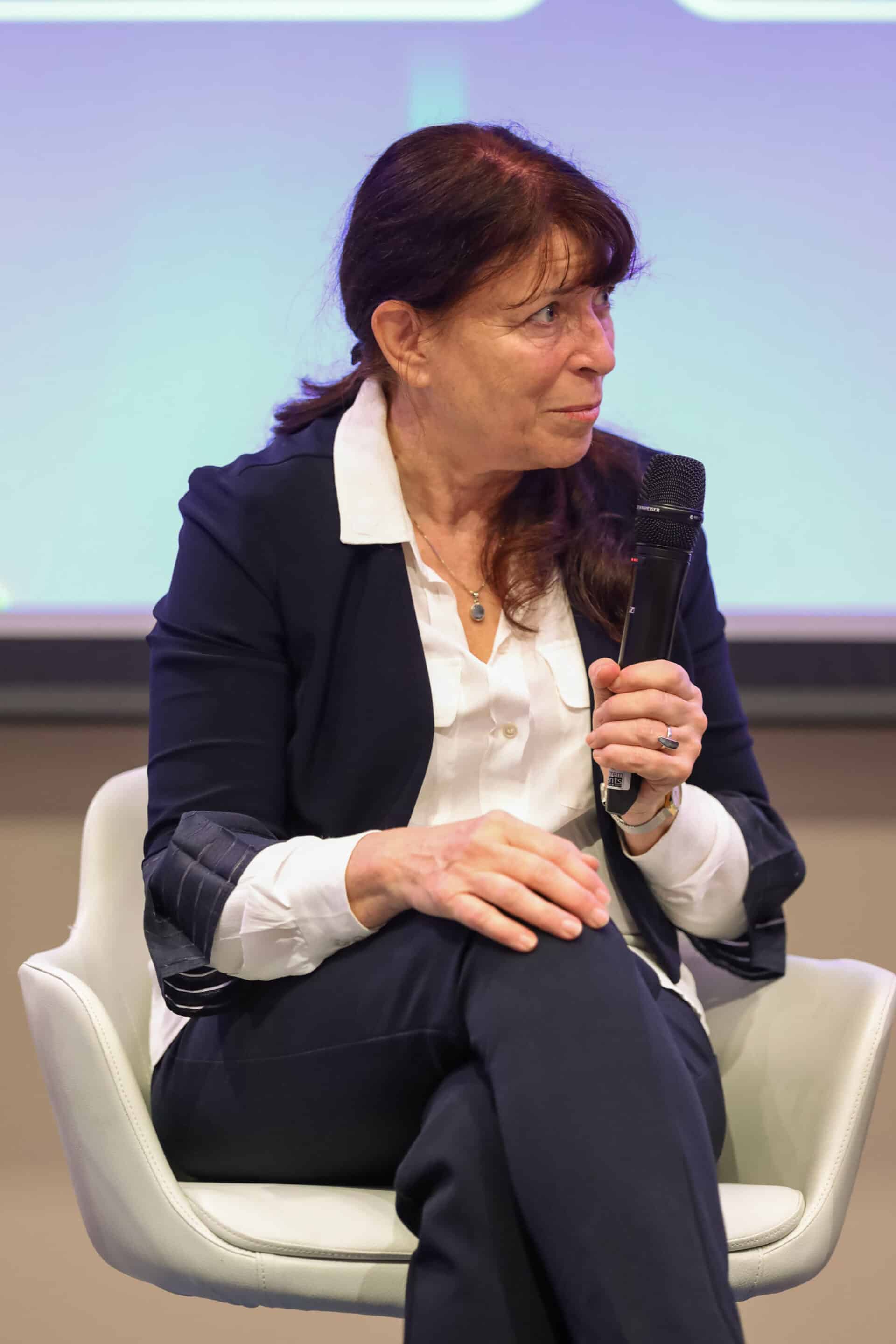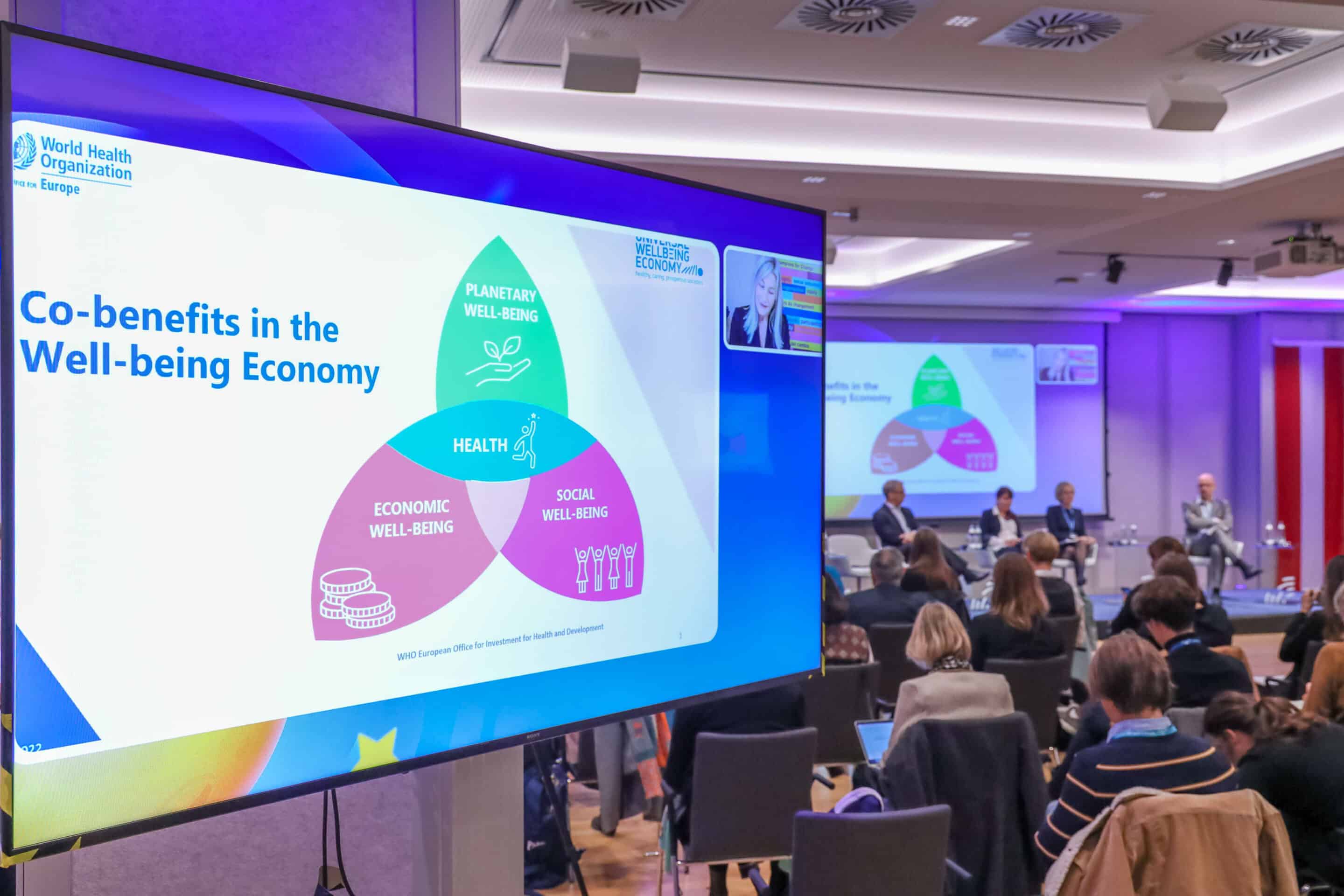One of the cross-cutting topics during this year’s European Health Forum Gastein was the ‘Economy of Wellbeing’, which is a policy and governance approach that puts people and their wellbeing at the centre of decision-making. It includes planetary, social, and economic wellbeing, and covers material factors, such as housing, income and jobs, and factors related to quality of life such as education, skills, health, gender equality and security. In the long term, it aims at strengthening equity, societal resilience, and environmental sustainability.
While there seemed to be sympathy and agreement among the session’s participants on the concept and on exploring an alternative to the gross domestic product (GDP) as a metric for how well countries are performing, they did point out that solid evidence, sound indicators, and strong governance frameworks are required to ensure the Economy of Wellbeing can indeed deliver on its ambitions.
Chris Brown, who heads the WHO European Office for Investment for Health and Development in Venice, Italy, put it as follows:
GDP is an important measure, but on its own is not enough. What’s needed really, is other measures that capture things like trust, security, resilience, cohesion, stability in society, democracy, civic participation, equality, equal opportunities, sustainable use of natural resources. These are the kind of indicators that are finding their way into multidimensional methods of looking at wellbeing.
She did however point to an important ‘but’:
BUT…in these multidimensional indices we don’t see good, strong, regular indicators for health systems, public health policy, healthy life expectancy, and health equity…it means that there’s a risk that health, health policies, public health, health as an outcome, health as an input, is undervalued, underestimated, under provisioned in investments around wellbeing. Secondly, it also risks that health continues to be seen as a cost and an expense, not a vital contributor, co-producer of development and recovery.
She continued by explaining that the impact of health interventions on health and wellbeing capital could be visualised by measuring and quantifying their co-benefits on social and economic wellbeing (e.g., on labour participation or social cohesion). But, to make this work successful, these alternative measures for GDP must be linked to financial planning and budgeting, and she recognised Wales for having sustainably invested in the wellbeing, health systems, and public health policy for the last 15 years already.
Vesna Kerstin Petrič, Director-General of the Public Health Directorate, Ministry of Health of the Republic of Slovenia, continued by stressing that the Economy of Wellbeing can only be taken from an academic discussion to a change in political will ‘by taking responsibility, by being accountable, and by using your own leadership, will, and network to advance the issues you’re passionate about’. And, Petrič stressed in another session on the topic, there should be no confusion about the roles of the different stakeholders, with governments being the main responsible for ensuring the health of their people. She also made the case that civil society has an extremely important role to play when it comes to voicing the needs of particularly the most vulnerable groups in society: ‘we have to invest financially and to empower them to do the job as it should be done’.

Vesna Kerstin Petrič © Image by European Health Forum Gastein via Flickr.
Overall, the Wellbeing Economy concept is still in an experimental phase with countries likes Finland, Wales, North Macedonia, and Slovenia taking a frontrunner position. EPHA has partnered with the WHO European Office for Investment for Health and Development in Venice, Italy, and looks forward to contributing to the High-level Regional Forum on Health in the Well-being Economy, in March 2023.

© Image by European Health Forum Gastein via Flickr.
